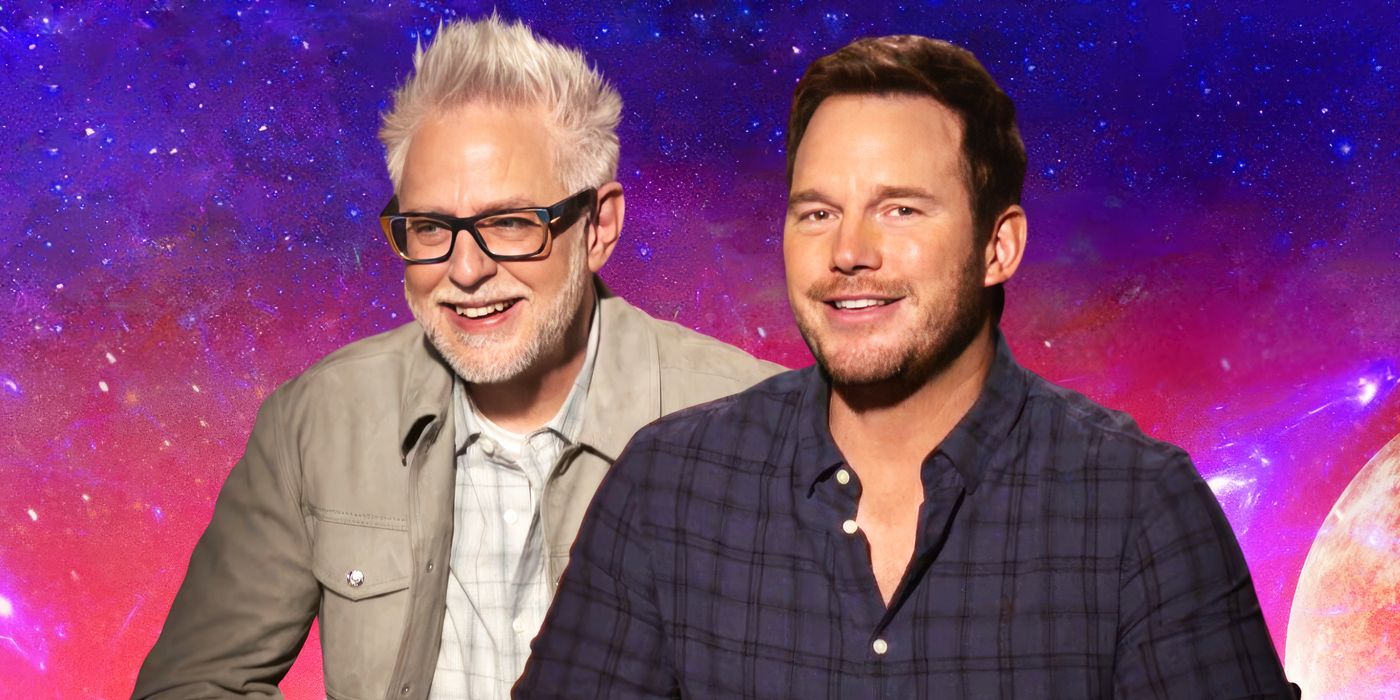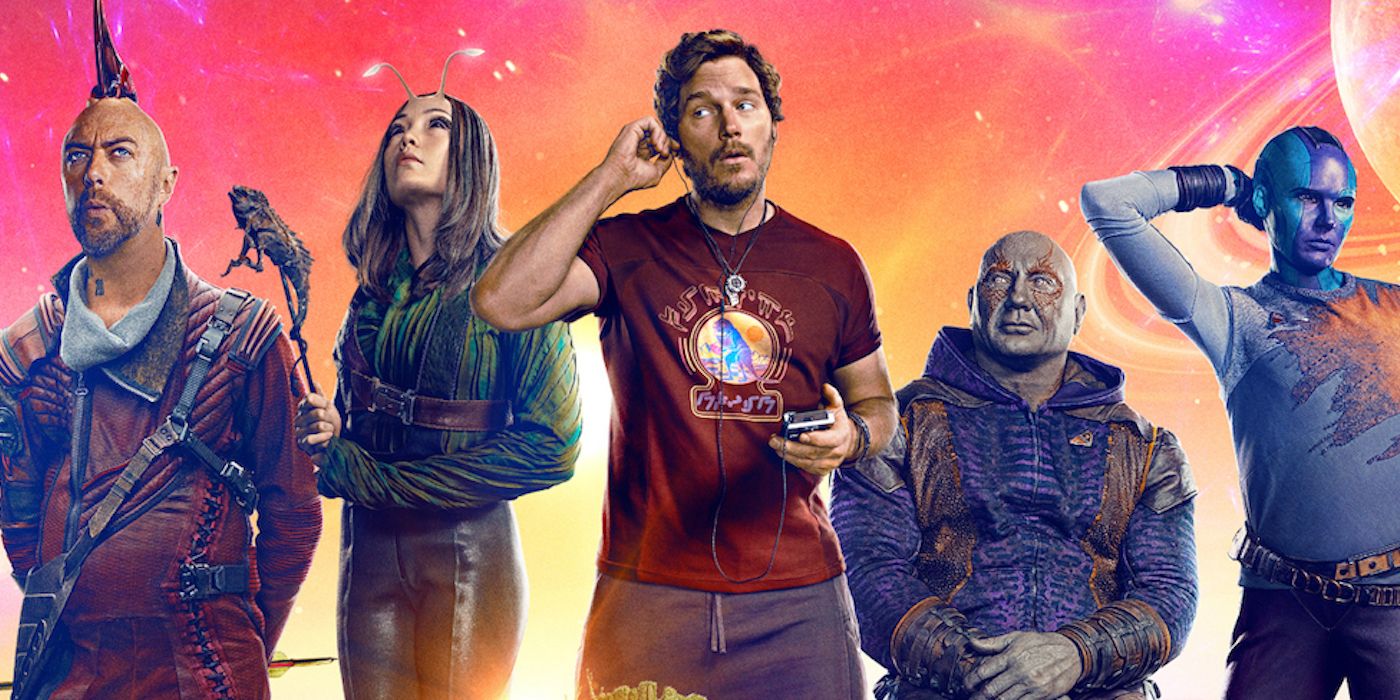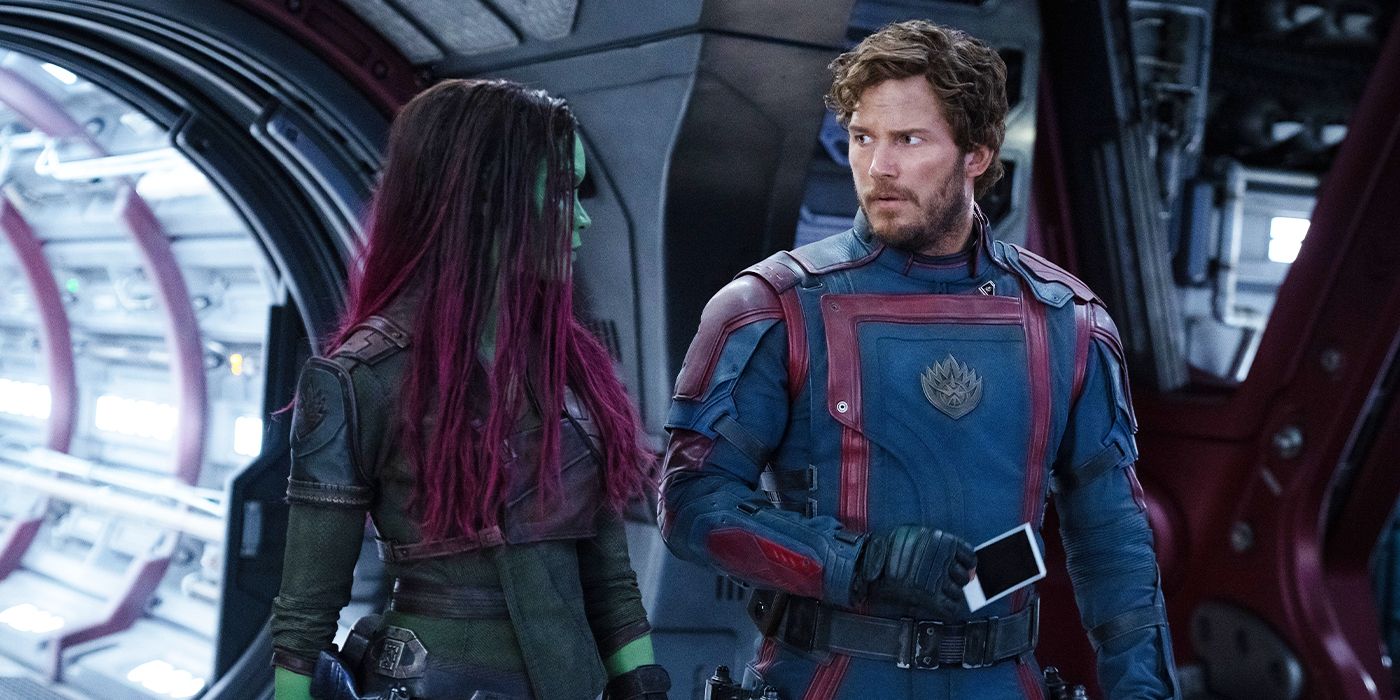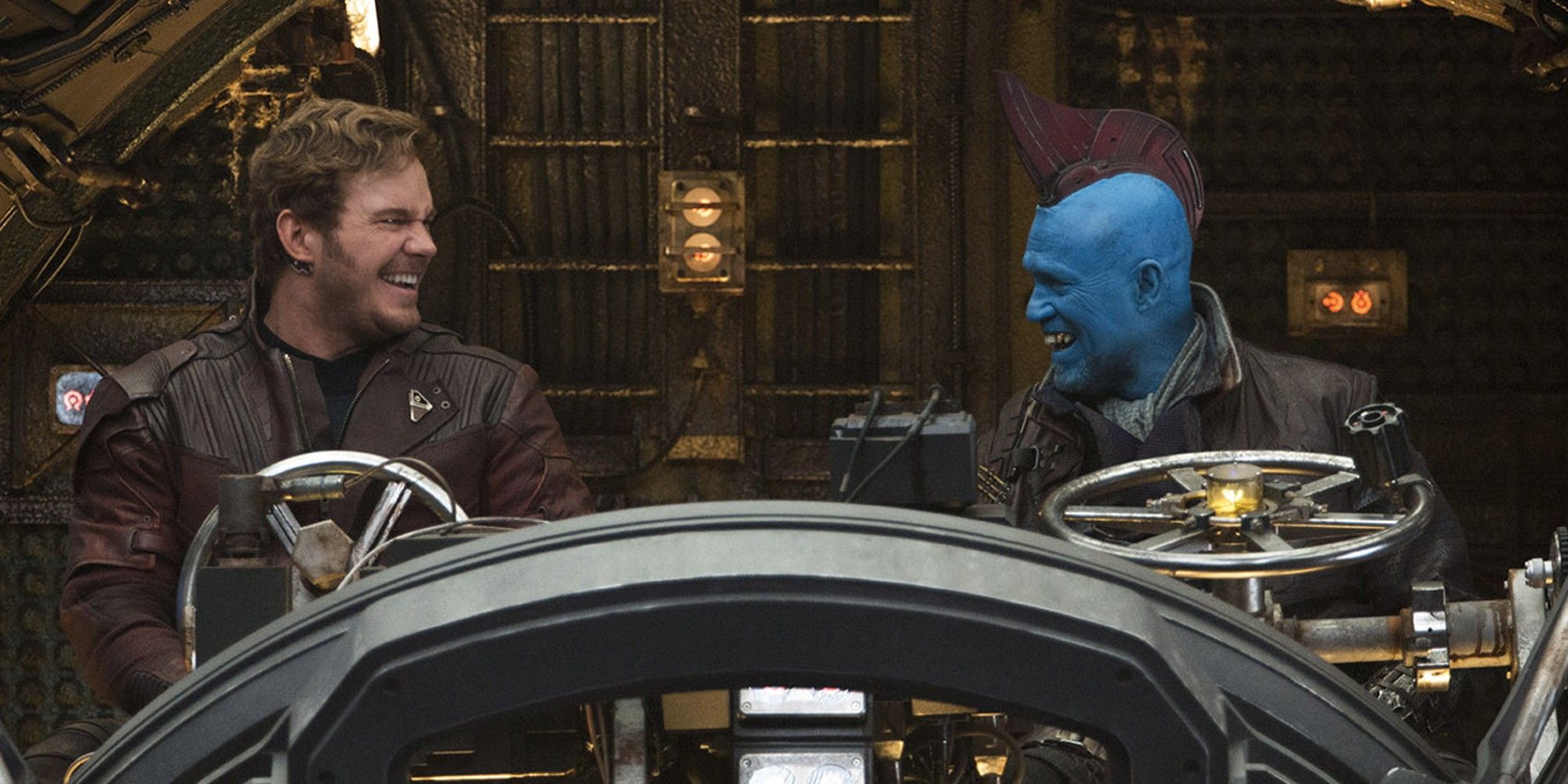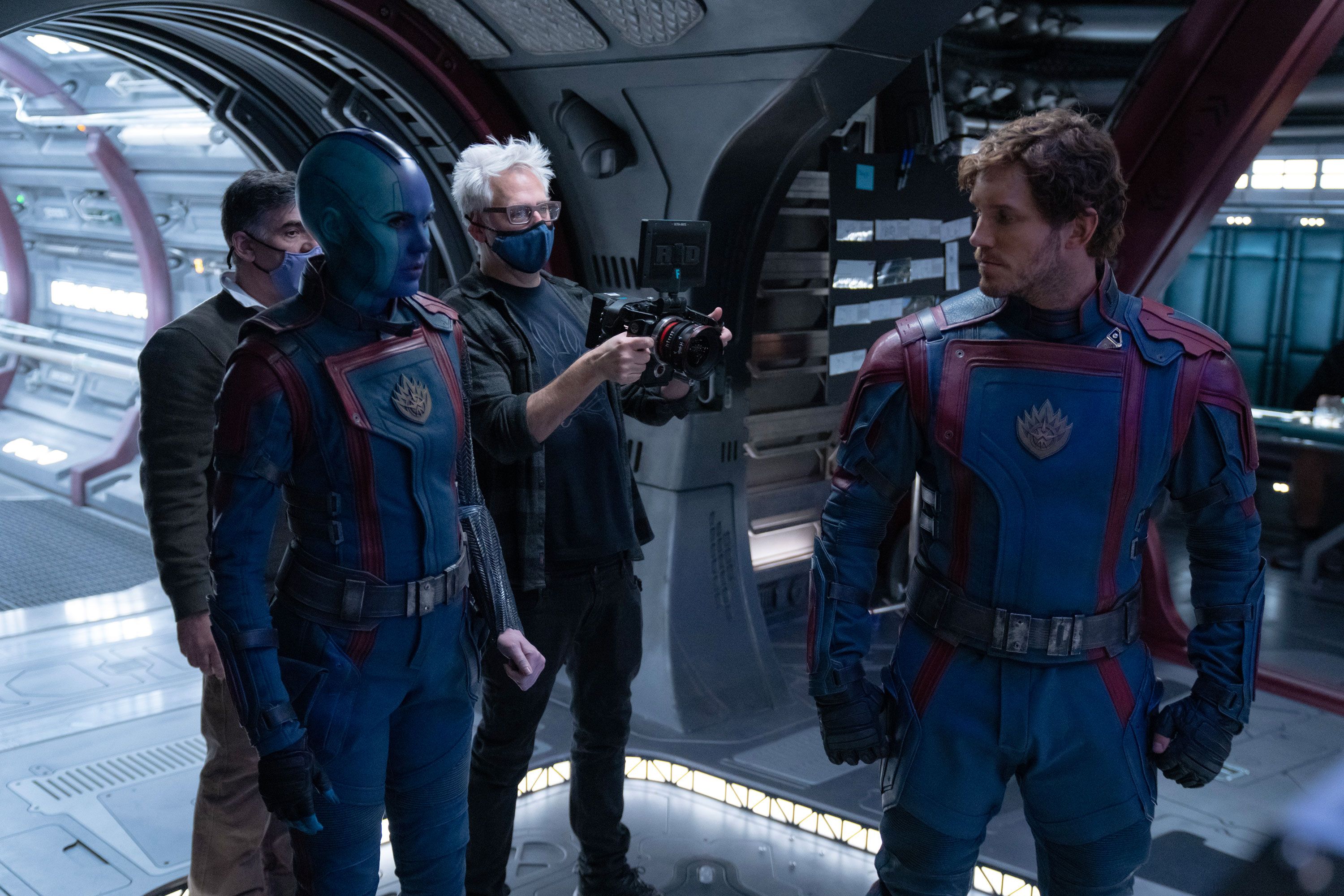It’s abundantly clear that there are a number of very special connections on the set of the Guardians of the Galaxy movies — connections between actors and their characters, and the cast and crew functioning like a close-knit family. I’m a big believer that kind of working relationship heavily impacts the end product and radiates off screen in the final film. It’s been the case with the first two Guardians movies and now the same is true in Guardians of the Galaxy Vol. 3.
The new movie sees all the members of the Guardians facing personal challenges, but at the core of Vol. 3 is Rocket’s (Bradley Cooper) past and his heavy impact on the group in the present. In addition to facing off against the perfect being, Adam Warlock (Will Poulter), the team also must deal with the High Evolutionary (Chukwudi Iwuji), the super-powered mad scientist responsible for Rocket’s creation. As always, the only way the Guardians can power through this especially high-stakes mission is by leaning on each other as a family.
With Guardians of the Galaxy Vol. 3 due out in theaters on May 5th, I got the chance to chat with writer-director James Gunn and star Chris Pratt about making the new installment and about pivotal memories and lessons learned from the full three-film series. Hear all about how the situation with Gamora (Zoe Saldana) is impacting Peter, how Gunn figures out when to kill off key characters, and loads more in the video interview above or in transcript form below:
Which character’s arc changed the most from how you originally envisioned their evolution panning out on day one of working on the Guardians trilogy, and then who stayed truest to what you originally envisioned for them?
JAMES GUNN: The most different was Kraglin because he was just the first mate who I gave a name to and I didn't know that he was going to become such a main part of the Guardians of the Galaxy. I never would have thought he was gonna be on the poster with a head-fin. That just kind of developed. And also because it was cheaper because we already had hired Sean [Gunn] for Rocket, and so we saved money by also giving him another character.
But, I will say, Rocket and Quill and Nebula were very close to what I originally envisioned from the beginning.
Chris, Peter’s been through a lot of really pivotal moments. Of all the ones that happen in Guardians 1 and 2 is there any particular scene or thing he experienced that you found influencing your performance and the choices he makes in Guardians 3 most?
CHRIS PRATT: I think probably what happened in Infinity War and Endgame with Gamora dying. That’s gotta have the biggest impact on Vol. 3, certainly. He had found who he was in her eyes and his love for her, and so when he looks in those eyes and doesn't see that anymore, it's pretty heartbreaking and I think that resonates through the course of the whole volume.
Very much so. This question is gonna make me sad, but just to theorize a little, what do you think the future would have held for him if the original Gamora was still there? How might his path have been different?
PRATT: Oh, I think that they were in love. I think the next natural step is that they would have started a family and been happy to be together, I suppose.
I don’t why I just asked that because now I'm even sadder that it didn’t happen.
PRATT: Yeah, he would have probably blown it though. He would have screwed it up somehow. Hopefully, otherwise, this wouldn’t be a great movie.
GUNN: She woulda hooked up with Adam Warlock like she does in the comics.
PRATT: Oh, that would be good for them. That’d be good.
I'm not allowed to ask about any spoilers, James, but I did want to ask you this particular question because many assume that in order to continue raising stakes in a series like this, you have to kill off characters. So more broadly, can you tell us a little bit about your approach to either needing a death because the story justifies it and you have to build those stakes versus keeping characters alive and when that kind of satisfaction is necessary?
GUNN: I don't think that killing characters is necessary. One of the things I've discovered over the years as I've killed characters in different movies, people know that I'm willing to do that. So, you know, I killed — I killed. [Laughs] Yondu died in Vol. 2. Original Groot died in Vol. 1. In Suicide Squad, I killed everybody practically. I killed a major character in Peacemaker. So people know I'm a guy who's willing to go there, and I think that the movies have to feel like that. Whether it's true or not, the movies have to feel like their lives are really at stake, and in most movies, I don't feel like that.
In some cases, I don't think we really think that Tom Cruise in Mission: Impossible is gonna die, you know? But for the most part, you need to feel that sense of stakes, and I think that's what's important more so than actually killing someone. It's all a function of story, and if someone dies, it shouldn't be — I try not to have people that die and are just there to service another character. It has to work as a part of the story and isn't just — well, I mean, that's not true in the case of the guys from the beginning of The Suicide Squad. That was just kind of killing them because it's funny, but when in the real story, like I would never have killed Yondu just to kill Yondu. It had to be intimately involved with the story, and I didn't want to kill Yondu. Michael Rooker is one of my very close friends, and I had him surviving in my first draft because I want to work with Rooker again and I wanted to put him in the next movie, and it just came to me that this is what this is about. You know, Peter Quill has to lose this character in his life and Yondu has to sacrifice his life. He has to come through. This is his redemption, and he can only do that by sacrificing his life, so I knew it was the right ending for the story and I'm always in service to that.
Chris, I love hearing everybody sing James's praises, so whether it's in movie three or any of the previous movies you've worked on together, can you give me an example of a time when you were having a tough time cracking a scene and some collaboration or a note he gave you made all the difference?
PRATT: No. I can’t think of anything. I'll make something up. [Laughs]
Oh my gosh, truly, it'd be hard to zero in on any one. I guess what would come to the top of my head, early on, a lot more probably in Vol. 1 and then also in Vol. 2, we developed a shorthand over the course of working together all these years. In Vol. 1 I remember there was a note. [Laughs] I tell people this and they think it makes you sound like a real dick, but it's actually an amazing thing, so I'm gonna tell it because I love an opportunity to make you look like a dick. There was a scene where my character is saying, ‘Blue Swede, Hooked on a Feeling, that song belongs to me,’ and it was important for it to be — in hindsight, now looking at it, I know what James was trying to get out of me. And he got it out of me I think, which was this really strong, energetic, loud, emotional plea to not lose this song. I was having a hard time getting there as an actor and also I couldn't justify why I would say it in a way that was the way he wanted it. It was hard for me to see the forest through the trees. He had an eye on the forest and I was looking at the tree and I'm like, ‘This doesn’t feel like the right tree.’ But I kept saying, ‘You know what I feel? Here’s what I feel. I feel this.’ And he goes, ‘It doesn't matter what you feel. It doesn't matter what you feel. Okay? It matters what I think.’ And I go, ‘Oh, okay.’ [Laughs] And At that moment — it obviously does matter what an actor feels, but the North Star is his vision, and his vision for that was just something that I couldn't see at the time. And then in seeing the movie, I was like, ‘Oh, that's what he was looking to do,’ and it took me a while to get there. It was embarrassing to get there, and I thought that when I did that take in the moment, it was almost like an, ‘F you. I'll give you exactly what you asked for,’ and then he put it in and I was like, ‘Oh, that was really great. That's exactly what he wanted.’ So I really learned, especially in that moment, trust him.
GUNN: I will say, that's actually — the second part I don't remember saying.
PRATT: What? It doesn’t matter what I think?
GUNN: It matters what I think, yeah.
PRATT: Or it doesn’t matter what you feel?
GUNN: Yeah, I had said that one time to Elizabeth Banks, too. She was doing this ridiculous thing and I said, ‘What the fuck are you doing?’ She's wiping up the glass on the ground with a book, and she says, ‘Why are you stomping on my self-expression?’ And I said, ‘This movie isn't about your self-expression. It's about mine!’ [Laughs] I’m joking! But it's really important to me, I say this all the time, I tell actors it doesn't matter what you feel, and it doesn't. That doesn't mean it doesn't matter what you feel as a human being. I don't want to hurt his feelings as a human being or have him feel bad as a human being, but actors often get caught up in the scene; I'm supposed to be sad. I have to feel sad, but you don't have to feel sad. You just have to appear on screen in the way you're supposed to be. And actors get so hung up on what they're supposed to feel and you don't have any real control over your feelings. So when I tell an actor it doesn't matter what you feel, to me, it's a compassionate thing to help them let go of this burden that they carry to try to feel a certain way and allow them to use the tools they have and the craft of acting to get to the spot where they probably will actually feel what they want to feel in the first place. But you can't get there by trying to feel something.
I'll use your term, Chris, a North Star here, so James, when you're functioning as a North Star in a series, I am wondering with what lies ahead for you, what is something about being a leader on a series that you learned from Guardians that you'll carry over to DC, but then also, what's a tool in that particular toolkit that felt specific to Marvel and Guardians that you're starting to feel must be left behind?
GUNN: Well, honestly, I’ll really miss my friendship — not my friendship because I'm still friends, but I'll miss my relationship with Kevin [Feige] and Lou [D'Esposito] because I really like those guys, and they are incredibly helpful. You know, Kevin's not as — you know, he lets us kind of do our own thing more so than on the first movie where he was around a little more, but he made one really big change. He made one suggestion for Vol. 3 that was really helpful. And so I’ll really miss that wisdom and the friendship. I really believe that the lyrics of Kenny Rogers' '[The] Gambler' have all the clues for being a filmmaker, which is, you got to know when to hold ‘em, know when to fold ‘em, know when to walk away and know when to run. And that is with every single thing that I do on the movie. You have to know when to fight and you need to know when to chill out and back down, and that has to do with other filmmakers, it has to do with actors, it has to do with producers, it has to do with studio heads. You have to know how to sort of ooze your way through things in a kind way.

